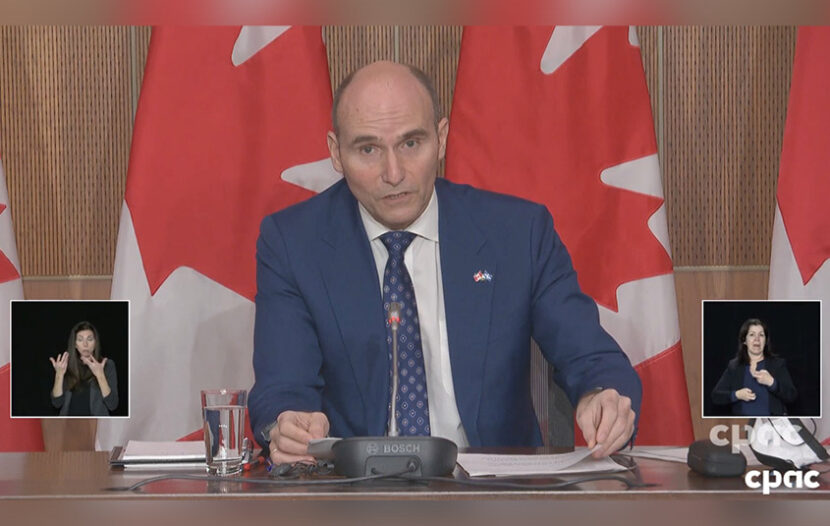OTTAWA — What would Health Minister Jean-Yves Duclos tell someone who’s planning a beach vacation for their family for the coming winter months, in the face of the omicron variant and other unknowns?
A reporter put that question to Duclos at a federal ministers’ COVID-19 briefing last Friday.
His answer was far from definitive, but for the travel industry at this uncertain time, maybe that’s a good thing. Because there’s still no travel ban or other blanket measures, just words of caution.
Here is Duclos’ response: “That’s a very personal thing. Every person, every family has their own situation. It would be inappropriate for me to judge people’s personal choices. However what I can say is that the situation can change very quickly. A week ago, we did not even know of this omicron variant.”
He then pointed to the new measures announced Nov. 30, including the requirement that air arrivals into Canada, including fully vaccinated travellers, undergo testing and self-isolate until they receive the results. That applies to all air travellers except those coming from the U.S., although that could change too.
“We announced measures which have a clear impact on people arriving at airports. So we’re hoping things go well. However things might become more complicated for people over the coming weeks. It’s not what we would wish for. The measures we’re taking now I believe are going to help ensure that things run as smoothly as possible in the coming weeks,” he said.
Later in the briefing Duclos reiterated that the federal government’s measures can change at any time: “That’s what life with COVID 19 is like.”
The government earned praise from industry groups for acting quickly to implement measures in the face of the new variant, however there’s also confusion and frustration about when the testing measures for all travellers, and self-isolate directives from border officials, will start.
Duclos said three challenges for ramping up testing capacity at airports are: lab capacity; having the human resources to implement the tests; and the physical space needed for testing facilities.
“This is all being phased in,” he said. “But let me be very clear, all travellers must be ready to be tested upon arrival. It’ll take a few days … but we’re already doing more and more tests every day. We won’t be able to test all the targeted travellers overnight. Testing rates will continue to increase until the infrastructure is in place to test everyone.”
Duclos added: “I encourage all Canadians to think about how these new rules may impact them and their families and to prepare for when they are fully in place.”
Transport Minister Omar Alghabra noted last week that the number of air arrivals tested is currently at about 20,000, and now needs to ramp up to 32,000. Duclos said airport testing capacity has increased by 60% since Dec. 1. The cost for the on-arrival testing is covered by the federal government (whereas any tests for entering another country, and Canada’s 72-hour pre-boarding test, is the responsibility of the traveller).
Daniel-Robert Gooch, President of the Canadian Airports Council (CAC), said last week that while Canada’s airports appreciate the government of Canada’s swift move to implement new measures to guard against further spread of the omicron variant in Canada, “we urge the government of Canada to work with Canada’s airports and air carriers … to ensure these measures, which haven’t been seen in detail, are operationally feasible at Canada’s international airports.”
As Gooch pointed out, “the only operationally-feasible way to test 100% of international arriving travellers – from all countries except the U.S. – is to provide off-site tests, such as those that travellers can take at their home or other point of self-isolation.”
Duclos says testing upon arrival at Canadian airports will be either on-site, or in the form of a take-home test.

